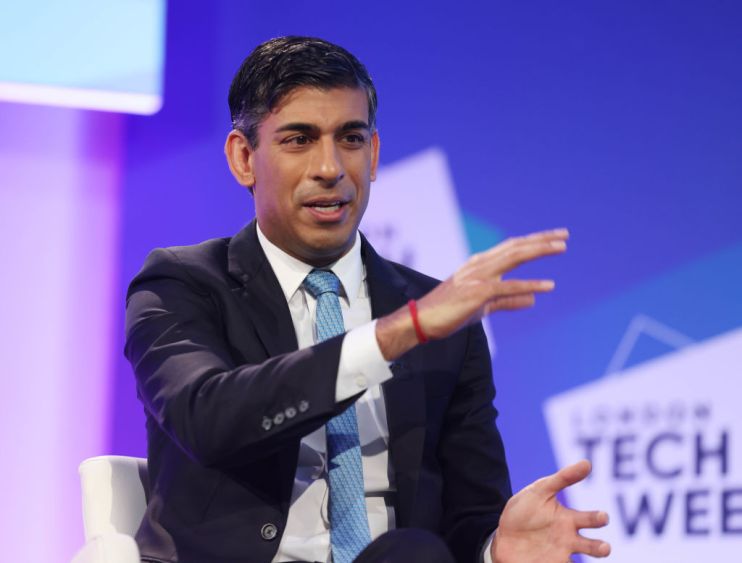Rishi Sunak says we’ll feel better off next year – but is the PM right?

Rishi Sunak has pledged Brits will all feel better off next year, as he said he “passionately believes” he can bring down inflation and ease the cost of living crisis.
Speaking to the Times, the prime minister vowed to be disciplined on public spending and tax rates in a bid to revive the UK’s economic fortunes.
It came after inflation fell from 7.9 per cent to 6.8 per cent last month, per the Office for National Statistics (ONS) with wages now higher than inflation in a first for almost two years.
Asked if workers would feel more money in their pockets in 2024, he said: “That’s my job, to make sure that not just happens but they feel that that’s happening… I’m really optimistic about the future.
“We’ve got a challenge right now to overcome but I’m entirely confident we will do it… The last couple of months show that the plan is working. We’re making progress.”
However, despite Sunak’s comments aiming to offer a salve to cash-strapped Brits, how realistic are his views?
City A.M. rounded up experts for a take on the PM’s predictions.
‘Right direction’
Julian Jessop, fellow at the Institute for Economic Affairs (IEA), highlighted two major pluses for the PM: the fall in inflation and indications of economic growth.
He believes Sunak will hit his target of getting inflation down to around five percent by the year end, and noted that last year “people were talking about a deeper, long recession”.
Jessop said: “Generally, I think things are heading in the right direction but I’m not entirely sure that the government is taking automatic credit for this.
“What’s really happening is the Bank of England is tightening monetary policy. So there’s a question mark about how much credit Rishi Sunak can really claim for this.”
Similarly, Laith Khalaf, head of investment analysis at AJ Bell said there was “deep uncertainty over the UK’s economic future”.
He warned: “Economic forecasts are often not worth the fag packets they’re written on, and as we have seen in recent years there are plenty of extraneous factors which can blow the economy off course.
“External forecasts by the Bank of England (BoE) show the economy shrinking by 1.2 per cent over the next year, or growing by 2.3 per cent.”
While a spokesperson for the Confederation of British Industry (CBI) said this weeks inflation news “came as a welcome relief to households struggling with the cost of living crisis”.
But they added: “The widening gulf between pay and productivity is a concern. Inflation will continue to fall through the remainder of this year, but the BoE has been clear that they’re willing to keep interest rates higher for longer if needed, to reign in price pressures.”
‘Deep structural problems’
Politically too, some warn that while the PM’s plan may come to fruition, it remains to be seen whether that translates to people’s wallets – or to their choices in the ballot boxes.
Andrew O’Brien, from cross-party thinktank Demos, said: “There are deep structural problems with our economy which all our politicians are ignoring.
“Until we fix them, it is hard to see how people will feel better off. We need a long term plan to get our country back on track, not just short term priorities.”
And Naomi Smith, CEO of Best for Britain, stressed that Brits “remain in the tight-grip of a cost of living crisis and prices are still going up, albeit at a slightly slower rate”.
She said: “The prime minister may have great optimism about the future but the British public do not share this sentiment.
“13 years of economic mismanagement by his party has left us with a decade of stagnant growth, low pay and high taxes, not to mention the billions in wasted government spending.”
